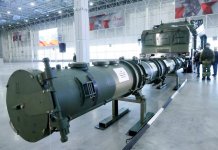Hamdullah Mohib an influential adviser to the Afghan military made a visit to India earlier this year and privately expressed his request for deployment of Indian Army in Afghanistan for a peacekeeping role.
Pakistan Breeding Taliban To Keep India Out Of Afghanistan – PTM
This request comes ahead of a peace deal between the Trump administration and the Taliban. The deal is anticipated to lead to the concluding withdrawal of United States forces from Afghanistan.
Kabul’s diplomatic sources hope to put together an international framework, perhaps United Nations-led for the deployment of the Indian Army in Afghanistan. India will definitely emerge as a powerful nation if she is able to accomplish the impossible. However, to most of India’s strategic institution, the idea of Indian army in Afghanistan appears insane.
With great power comes great responsibility. For the Indian army, failure will have high costs with the risk that southern Afghanistan becoming a safe home for jihadists, and a prolonging insurgency could eventually destabilise the West Asian states who depend on India for its energy security.
Indian Media Wakes-Up After 30 Years To Cover Kashmiri Pandit Genocide
Intervention in Afghanistan hasn’t had any substantial outcomes. From the devastation of Britain’s army, which included thousands of Indian soldiers in 1842, to crushing down of Soviet Union in 1979-1989, and the chaos the United States has descended into since 9/11, all the big powers have had their share of the bitter taste of fighting the Taliban.
The calls of help are understandable as Taliban negotiators and US diplomats are on the verge of signing a peace agreement. Bitter experience has taught Afghans to be dubious, the Taliban is likely to reconcile with terror outfits the minute the United States vacates its military bases.
Few Indian military analysts see the deployment of Indian army in Afghanistan as justifiable. However, there is no way to provide logistical support to an Indian garrison.
Experts talking to the EurAsian Times states that years after India’s unfortunate involvement in Sri Lanka, the country doesn’t have the sufficient logistical and technological means to support a counter-insurgency in another country.
“Experience also teaches us,” experts argue, “that missions like these tend to snowball. We’ll send troops; they’ll be attacked by Pakistan’s proxies, and we’ll have to send more troops to protect them.”
Afghan authorities have criticized Russia in allegedly providing secret military assistance to Taliban units operating in the northern part of the country, a claim Moscow ultimately denies. For its share, Russia finds in the Taliban an ally against the Islamic State on the borders of its central Asian allies.
Beijing has similarly cultivated close links to the Taliban, in return for help with jihadists seeking to target Xinjiang province.
Did Islamabad Incite Pakistani Students In Wuhan To Mock Indian Offer Of Evacuation?
New Delhi, however, should not be relying on the Taliban’s goodwill. Although Taliban negotiators have reached out to New Delhi, looking for diplomatic engagement, the group is deeply entangled with Pakistan’s Inter-Services Intelligence Directorate. It also has links with a number of anti-India jihadist groups from the Lashkar-e-Taiba and Jaish-e-Muhammad, to al-Qaeda’s Indian subcontinent unit.
If India means to be taken seriously as a regional power, a status it often seeks, it also needs to deliver towards the region’s collective security. For years, India has sought a seat at the global high table but has turned away from the responsibilities that it comes with. It is high time India proves its worth with the opportunity it has at hand.
Via: CNBC, Edited By Alisha Upadhayay




